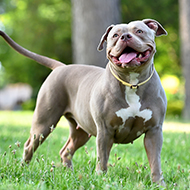
Biological material including 40,000 DNA samples saved.
Vital research assets from the Kennel Club Genetics Centre have been moved from their base at the Animal Health Trust (AHT) in Newmarket to Cambridge University.
In a joint statement, the Kennel Club and the AHT confirmed the safe transfer of scientific data and biological material, including 40,000 DNA samples. The news comes in the wake of the closure of the AHT headquarters, announced earlier this month.
Bill King, chairman of the Kennel Club Charitable Trust, which has funded the Genetics Centre since 2009, thanked Professor James Wood at Cambridge Vet School, for his help in securing the safekeeping of the samples.
“The Kennel Club and the Kennel Club Charitable Trust have long supported and worked together with the AHT to improve dog health, so it is a very positive development that the Kennel Club’s considerable investment in this area has been saved in spite of a few weeks of uncertainty," he said.
The Kennel Club Charitable Trust was was established to accelerate research into inherited canine diseases and aims to develop mouth swab screening tests to determine affected and carrier dogs.
KC Genetics Centre leader Dr Cathryn Mellersh, commented: “Since the Genetics Centre was founded in 2009, by collaborating closely with dog breeders and veterinary surgeons we have developed DNA tests for 22 different inherited diseases which benefit around 50 different breeds of dog.
“We know that breeders make good use of DNA tests to reduce the frequency of these mutations and thus improve the genetic health of countless dogs. There is no reason why this ethos should change now that the information is stored in Cambridge and the Kennel Club Genetics Centre staff are relieved and grateful that all this information and resources have been saved.”
Future developments from the KC Genetics Centre are expected in due course.
Image (C) Heidi Hudson/KC Charitable Trust



 A scheme that helped owners of XL bully dogs with the cost of neutering has closed to new applications due to high demand.
A scheme that helped owners of XL bully dogs with the cost of neutering has closed to new applications due to high demand.